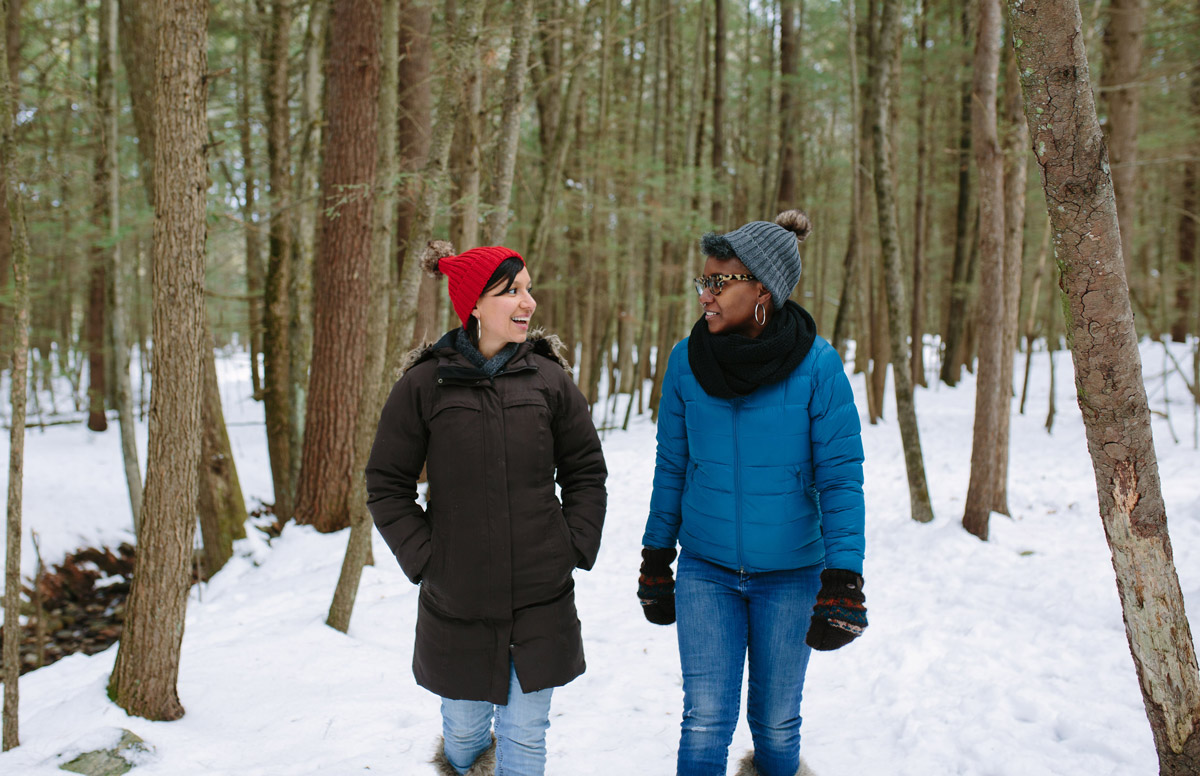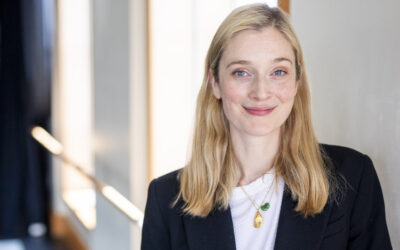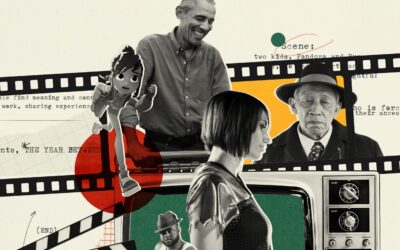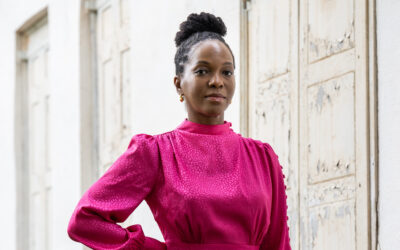Outdoors, this CA alumna is helping people embrace themselves
by Nancy Shohet West ’84

After more than a decade working as a public health social worker and educator, focusing on topics such as partner abuse, sexual violence, the commercial sexual exploitation of children, refugee resettlement, and positive youth development, CarmenLeah Ascencio ’01 acknowledged to herself that she was burned out — not by the issues, but by challenges in institutional culture and leadership endemic to some nonprofits.
Going into private practice as a therapist seemed like an answer, until she discovered that the physical discomfort of sitting in an office all day was untenable.
“It wasn’t working for me,” she recalls. “My hips hurt. My back hurt. So I started walking outside in local parks with my therapy clients. I called it walk-and-talk therapy, and I soon discovered I felt more satisfied, more grounded, less tired.”
She saw her clients benefiting from the outdoor exposure as well. “I noticed that nature was soothing and calming for them,” she says. “Our indoor environment isn’t natural to human evolution and biology. Once they got outside and into the natural world, past the stuckness of their daily indoor routine, they sensed an easing of their anxiety and depression, and they didn’t want to come back inside.”
It wasn’t long before Ascencio stumbled upon a name for what she was doing: ecotherapy, which she defines as integrating the presence of nature — “walking on the grass, sitting on the ground, touching the trees, meditating with plants” — into traditional talk therapy.
“I called it walk-and-talk therapy, and I soon discovered I felt more satisfied, more grounded, less tired.”
— CarmenLeah Ascencio ’01
“People don’t come to me specifically seeking ecotherapy,” she said. “People come to me because I am a queer Latina and they want to see themselves represented in their therapist. When I tell them I work only outside, they’re willing to give it a try.”
Though the idea of drawing emotional sustenance from nature may seem intuitive to many, it wasn’t intrinsic to Ascencio’s urban upbringing. “When I was growing up, as a person of color, the implicit message was that environmental things were what white people did, not folks of color in the city,” she says. “I didn’t think of my community as people who went hiking or took nature walks, because I didn’t see myself represented there.”
But that changed for Ascencio a few years ago when she was living near the California coast. “I discovered I had a deep desire to learn to surf,” she says. “So I took a lesson. Northern California surfing isn’t what you see in pictures, with sunny beaches and bikinis. The water was cold; we wore wetsuits from head to toe. It was hard and so humbling, and I was exhausted. I could barely even get my board out into the surf. But at the end I felt so invigorated, even though I’d been pummeled by waves for four hours. I saw the ocean as so powerful and such a symbol of something calming and soothing and vast, but also dangerous. It evoked a richness around pain.”
When she returned to her native New England, Ascencio brought a newfound passion for the outdoors to her work. While practicing in Boston, she walked with her clients in an urban arboretum and designed a therapeutic paddleboarding program on the Charles River. After she moved to rural western Massachusetts with her two young children in late 2019, the opportunities to immerse herself and her clients in nature expanded.
Some of her clients refer specifically to anxiety about climate change in their therapy; for others, it’s more of a metaphor. “One aspect of therapy is supporting people as they move through a sense of overwhelm to take action that will result in change,” she says. Whether that sense of being overwhelmed is more global or personal in nature, “when they feel the pain and suffering happening with the earth while still acknowledging its beauty, they might see it as similar to how they can tolerate and make peace with the pain and suffering in their own life.”


